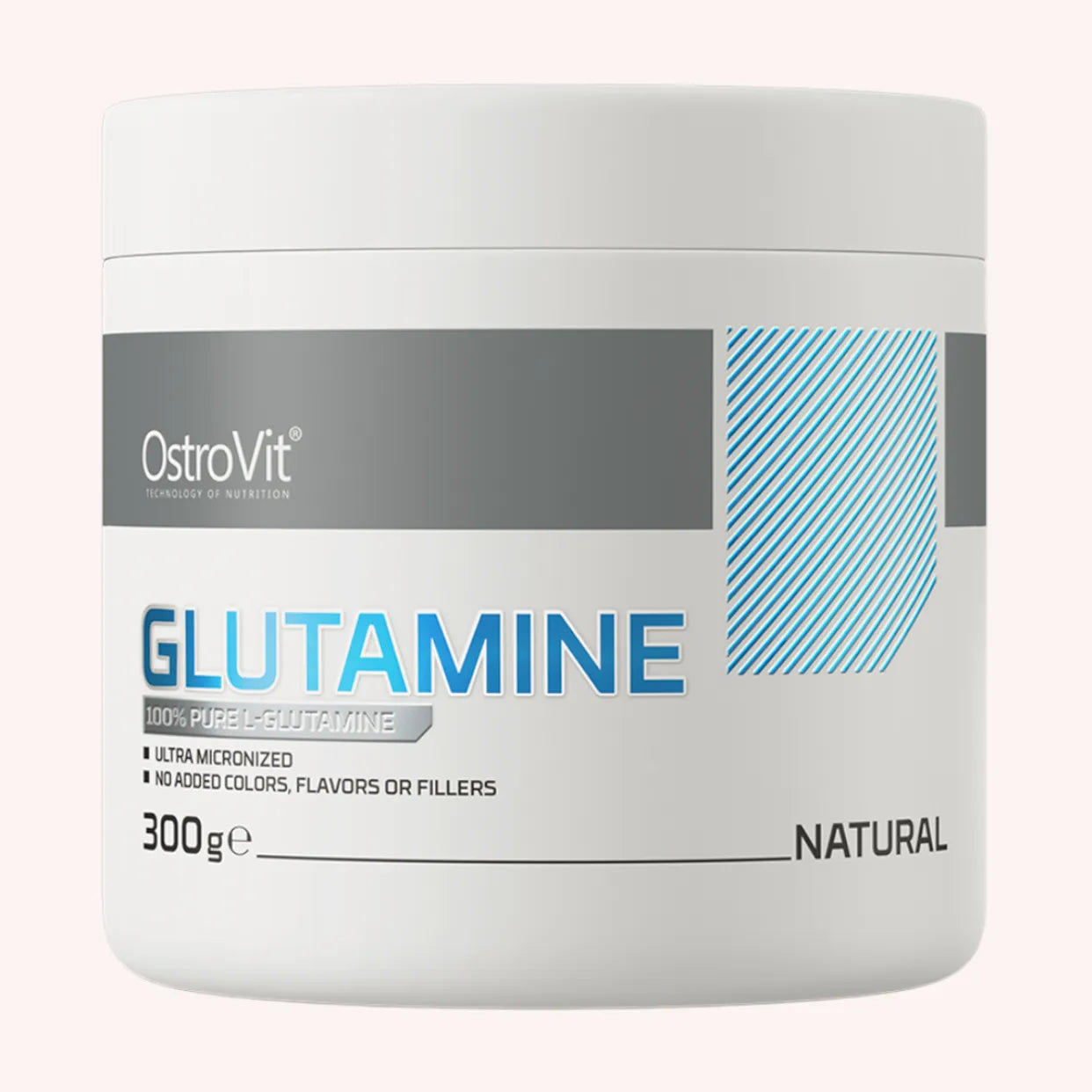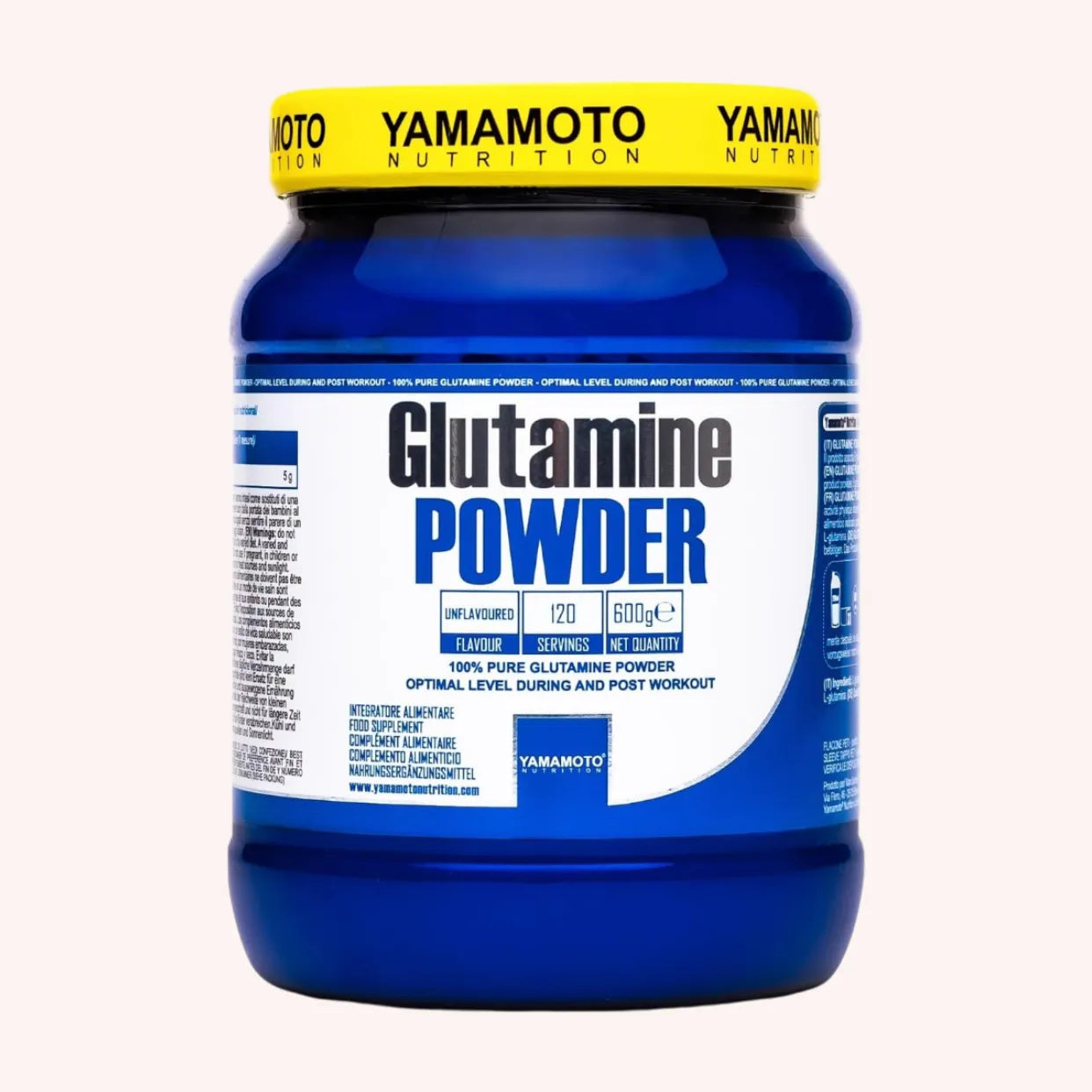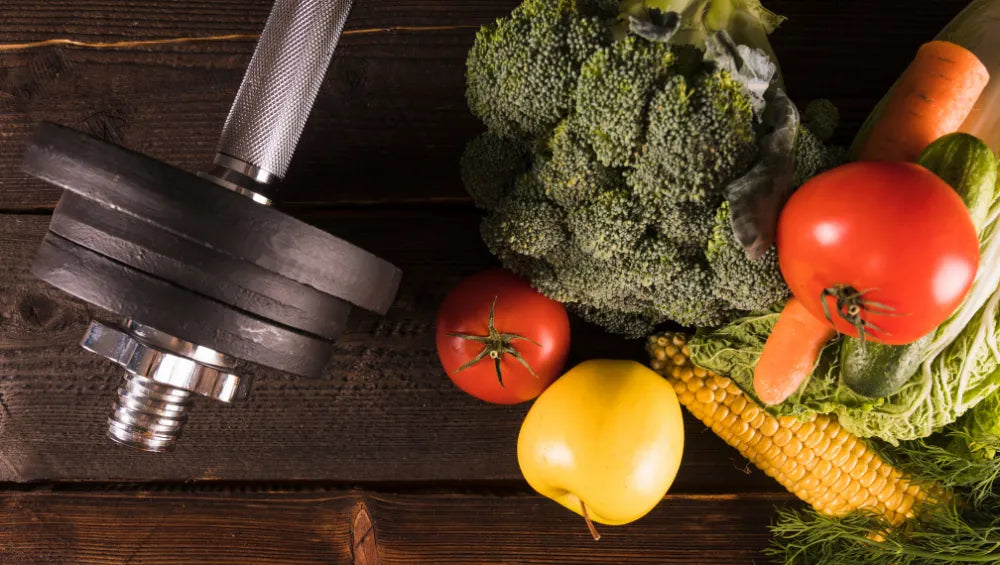L- Glutamine is a non-essential amino acid , but it is nonetheless fundamental for many functions in the body. In addition to aiding in muscle recovery , it plays a key role in gut health , an often overlooked but essential aspect for athletes.
Its beneficial action on the digestive system makes it a valuable ally for those seeking to improve their performance while taking care of their intestinal well-being.
What is L-Glutamine?

What foods contain glutamine?
Produced naturally by the body, glutamine is also present in certain foods, such as meat , fish , eggs and dairy products , but also in plant sources such as spinach , cabbage and legumes .
Because of its multiple physiological roles, glutamine is often referred to as a "conditionally essential amino acid," particularly in certain situations where the body may need external supplementation using a sports supplement .
How does glutamine affect intestinal permeability?
One of the main roles of glutamine is to support the integrity of the intestinal barrier , a thin layer of cells that protects the body by preventing toxins from entering the bloodstream. The optimal functioning of this barrier is essential for proper digestion and efficient absorption of nutrients.
During situations of high stress, whether it’s from intense training or restrictive dieting, the need for glutamine increases. This increased need can affect your intestinal barrier and lead to increased intestinal permeability , a phenomenon known as “leaky gut” or leaky gut syndrome. When this happens, toxins and other unwanted elements can easily enter the bloodstream, causing digestive discomfort. Glutamine is used by cells in the small intestine as an energy source, which helps repair damaged intestinal tissue and maintain a healthy intestinal barrier .
Studies have shown that L-Glutamine supplementation helps reduce intestinal permeability, thereby supporting digestion and preventing certain digestive disorders.
How does L-Glutamine influence digestion?
Glutamine plays a key role in balancing the intestinal microbiota , this set of microorganisms essential for digestion. A decrease in this precious amino acid can unbalance the intestinal flora , thus promoting disorders such as bloating, flatulence, or diarrhea.
For athletes, often subjected to intense physical efforts, the need for glutamine increases. Indeed, prolonged training or competitions can stress the body in such a way as to cause glutamine depletion, thus compromising the intestinal flora . Glutamine supplementation then becomes particularly interesting, not only to promote optimal digestion, but also to reduce inflammation linked to these physical demands. In addition, it helps to strengthen the intestinal barrier , essential for preventing infections and microbiota imbalances, often exacerbated by physical stress.
L-Glutamine and Sport: A Direct Link to Gut Health
For athletes, L-Glutamine supplementation is not just about muscle recovery . It can also play a key role in maintaining gut health , which is often put under strain during intense workouts. In fact, prolonged physical exertion can lead to a weakened intestinal barrier and inflammation. This can lead to discomforts like cramping or bloating, which can hamper performance.
Glutamine helps counteract these effects by stimulating the proliferation of intestinal cells and strengthening the junctions between cells in the intestinal wall , thereby limiting intestinal permeability . By promoting digestive health, glutamine also helps with better assimilation of nutrients needed for athletic performance.
What is the recommended dose of glutamine?
Glutamine needs vary from person to person, depending on physical activity and goals. For an individual with a balanced diet , it is possible to cover their daily glutamine needs through food. However, in the context of intensive training or a particular demand on the body, supplementation may be considered.
The recommended dose of glutamine for digestive support is generally 5 to 10 grams per day , divided into several doses. It is advisable to consume it before and after training, as well as at bedtime to optimize recovery and avoid any glutamine danger. Higher doses may be considered for high-level athletes or in specific cases.
Glutamine, while often known for its role in muscle recovery , is also a valuable ally for gut health . By supporting the intestinal barrier , promoting digestion , and regulating the gut microbiota , glutamine contributes to overall well-being.
Proper supplementation can not only improve athletic performance, but also prevent digestive upsets often associated with intense workouts. For athletes looking for effective digestive support, L-glutamine is an interesting option to incorporate into their daily routine.
Sources:
- Coqueiro AY, Rogero MM, Tirapegui J. “Glutamine as an Anti-Fatigue Amino Acid in Sports Nutrition.” Nutrients. 2019 Apr 17;11(4):863. : https://pubmed.ncbi.nlm.nih.gov/30999561/
- Calder PC, Yaqoob P. "Glutamine and the immune system." Amino Acids. 1999;17(3):227-41. : https://pubmed.ncbi.nlm.nih.gov/10582122/
- Kim H. “Glutamine as an immunonutrient.” Yonsei Med J. 2011 Nov;52(6):892-7. : https://pubmed.ncbi.nlm.nih.gov/22028151/
- Legault Z, Bagnall N, Kimmerly DS. “The Influence of Oral L-Glutamine Supplementation on Muscle Strength Recovery and Soreness Following Unilateral Knee Extension Eccentric Exercise.” Int J Sport Nutr Exerc Metab. 2015 Oct;25(5):417-26. doi: 10.1123/ijsnem.2014-0184: https://pubmed.ncbi.nlm.nih.gov/25811544/
- Welbourne TC. “Increased plasma bicarbonate and growth hormone after an oral glutamine load.” Am J Clin Nutr. 1995 May;61(5):1058-61. doi: 10.1093/ajcn/61.5.1058 https://pubmed.ncbi.nlm.nih.gov/25811544/
- Carvalho-Peixoto J, Alves RC, Cameron LC. “Glutamine and carbohydrate supplements reduce ammonemia increase during endurance field exercise.” Appl Physiol Nutr Metab. 2007 Dec;32(6):1186-90. : https://pubmed.ncbi.nlm.nih.gov/18059593/
- Demling HR. “Nutrition, anabolism, and the wound healing process: an overview.” Eplasty. 2009;9. Epub 2009 Feb 3 .: https://pubmed.ncbi.nlm.nih.gov/19274069/
- Córdova-Martínez A, Caballero-García A, Bello HJ, Pérez-Valdecantos D, Roche E. “Effect of Glutamine Supplementation on Muscular Damage Biomarkers in Professional Basketball Players.” Nutrients. 2021 Jun 17;13(6):2073. doi: 10.3390/nu13062073 : https://pubmed.ncbi.nlm.nih.gov/34204359/








